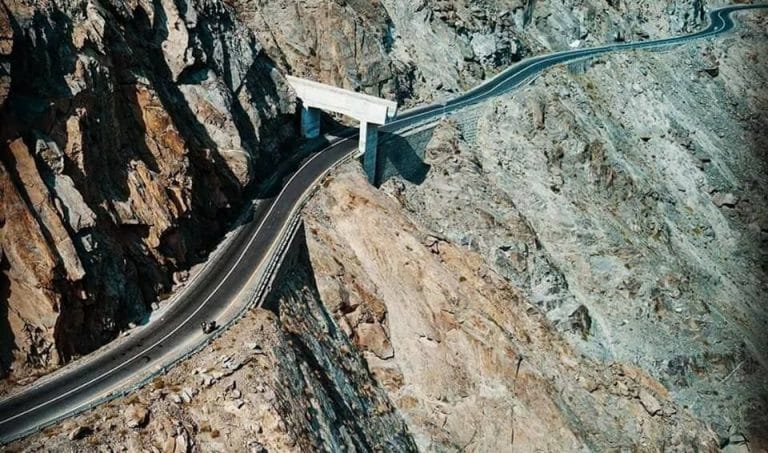China will provide 85% financing for the realignment of the Karakoram Highway and has endorsed Islamabad’s plan to seek multilateral funding for the Main Line-1 (ML-1) railway project after Beijing declined to extend concessional loans, The Express Tribune reported.
The decisions were made during the 14th Joint Cooperation Committee (JCC) meeting in Beijing, co-chaired by Pakistan’s Planning Minister Ahsan Iqbal and Zhou Haibing, Vice Chairman of China’s National Development and Reform Commission (NDRC).
Pakistan will begin phased bidding for the 241-kilometer Thakot-Raikot section of the Karakoram Highway, which requires realignment after submersion caused by major dams. The project is estimated to cost $2 billion (Rs576 billion). In the first phase, an 82-kilometer stretch impacted by the Diamer-Basha Dam will be addressed.
While China has agreed to finance the highway as a special case to maintain the strategic road link under extreme weather conditions, the $7 billion ML-1 project will now be funded through multilateral banks, including the Asian Development Bank (ADB) and Asian Infrastructure Investment Bank (AIIB).
Field surveys for ML-1 are already underway, with phased construction planned to ensure safety and continuity.
Both sides emphasized coordination on climate resilience and infrastructure projects, including the establishment of a circular account for electricity bill payments under CPEC energy agreements and the development of a 300 MW solar project in Gilgit-Baltistan to end prolonged blackouts.
China also encouraged Pakistan to review its debt profile and explore financing solutions that avoid further accumulation of public debt. Beijing recommended strengthening communication to align progress on the N35 realignment and Diamer-Basha Dam operations, including restrictions on water storage until realignment completion to prevent road disruptions.
Export promotion and industrial collaboration were also discussed. Pakistan proposed two government-to-government special economic zones (SEZs) in Karachi and Islamabad as export-oriented hubs, prioritizing industrial relocation from China in textiles, electronics, pharmaceuticals, engineering, and electric vehicles.
A Pakistan-China Industrial Relocation Fund was suggested to mitigate investment risks and accelerate foreign direct investment.
Additionally, both sides agreed to maintain electricity price stability for CPEC energy projects, resolve disputes amicably, and shift the CPEC framework toward business-to-business partnerships.
The second phase of CPEC will align China’s Five Corridors with Pakistan’s URAAN framework, focusing on Exports, E-Pakistan & Innovation, Energy & Infrastructure, Environment & Climate Change, and Equity, Ethics & Empowerment.
The JCC highlighted that timely implementation of both the Karakoram Highway and ML-1 projects will deliver significant economic and strategic benefits, strengthening connectivity between Pakistan and China while supporting regional development.
Discover more from Brackly News
Subscribe to get the latest posts sent to your email.



